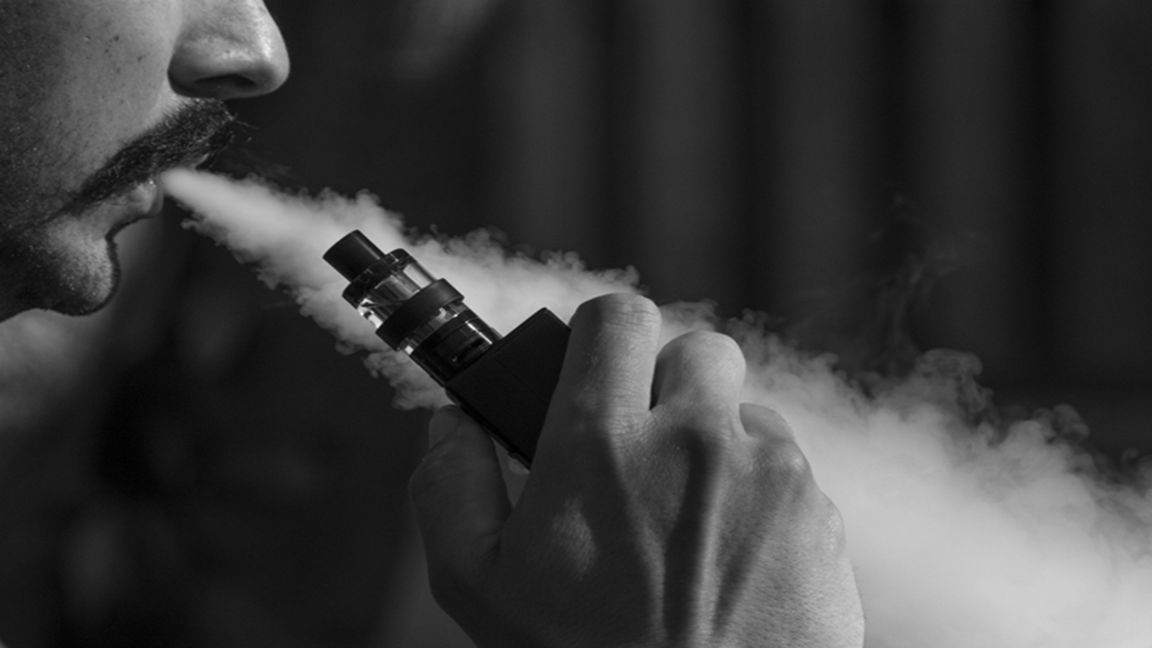A measure recently passed by the Senate to "regulate" the sale of e-cigarettes and vaping devices will go directly against President Rodrigo Duterte's campaign vow to combat substance abuse and drug addiction, health and labor groups charge.
Health and labor organizations are lobbying for President Rodrigo Duterte to veto Senate Bill No. 2239, (Vaporized Nicotine Products Regulation Act), as they asserted that vaping and electronic cigarettes, like tobacco, are harmful to one's health.
The bill lowers the legal smoking age from 21 to 18 years old and transfers regulatory authority from the Department of Health's Food and Drug Administration (FDA) to the Department of Trade and Industry (DTI).
The Philippine College of Physicians (PCP) expressed disappointment with the Senate's ratification of SB 2239 on the third and final reading.
According to a statement issued by the PCP, the measure will deregulate the nicotine business and go directly against the President's campaign vow to combat substance abuse and drug addiction.
“HealthJustice, a non-government organization is strongly against this bill for being anti-children and anti-health for it allows 18 years old to purchase and use the vaporized nicotine products (VNP), such as vapes and HTPs, allow online sales, and does not ban fruit and candy flavors attractive to children,” lawyer Benedict Nisperos, the group’s legal consultant, said.
Nisperos stated in a webinar last Saturday (December 18) hosted by the Institute for Consumers' Rights and Empowerment (ICORE) in collaboration with Liga Manggagawa (Workers' League) and the Philippine Smoke-Free Movement (PSFM), that the goal is to quit smoking and eliminate nicotine dependence.
SB 2239, on the other hand, promotes smokers to develop a new nicotine addiction, which has been linked to e-cigarette, or vaping, product use-related lung harm (EVALI).
Nisperos was adamant that vapes and e-cigarettes are dangerous.
Vape liquids with different "flavors" entice youthful smokers to vape.
Nicotine is an addictive chemical, and research has indicated that users are more prone to use other addictive substances, he added.
According to HealthJustice, studies suggest that e-cigarettes increase tobacco usage by 100 percent, marijuana use by 500 percent and illicit substance use like amphetamines by 300 percent.
Labor groups participating in the webinar also prepared and signed a position paper urging the President to veto SB 2239.
Separately, the Social Watch Philippines (SWP), a non-governmental organization, and the PSFM are advocating for House Bill (HB) No. 8673, an Act Requiring a Smoke-Free Environment in All Public Places and Workplaces, and revising R.A. The "Tobacco Regulation Act of 2003" is also known as 9211.
The proposed amendment would increase the severity of sanctions for violations of the smoke-free environment.
According to the SWP, 11,000 Filipinos die each year because of tobacco-related disorders.
The Philippines loses around 210 billion pesos because of productivity loss, death, and healthcare costs caused by tobacco-related diseases.
Secondhand smoke is present in 21.5 percent of Filipino people' indoor workplaces, according to the Global Adult Tobacco Survey.
Meanwhile, 21.9 percent and 37.6 percent of people are exposed to it in restaurants and public transportation, respectively.
According to the Global South Tobacco Survey, 54.2 percent of youth are exposed to secondhand smoking in confined spaces.
Tags: #tobacco, #ecigarettes, #vaping, #health, #InstituteForConsumerResearchandEmpowerment
